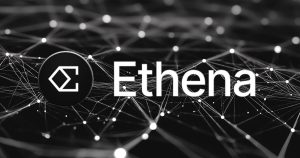The world of web browsers may be on the verge of a significant shift, as Microsoft is reportedly testing the integration of a Web3 wallet into its Edge browser, according to software documenter and info leaker Albacore.
In a series of tweets, Albacore revealed alleged user interface (UI) screenshots, illustrating the early stages of Microsoft’s new crypto and nonfungible token (NFT) friendly wallet.
Newest in the gauntlet of questionable upcoming Microsoft Edge features, a crypto wallet 💸Not really sure how to feel about this kind of thing being baked into the default browser, what are your thoughts?More screenshots of the UI in the next tweet ➡️ pic.twitter.com/GAUPiZGLIY
— Albacore (@thebookisclosed) March 17, 2023
If the reports prove accurate, Edge users will soon be able to buy, sell, and trade cryptocurrencies and NFTs directly from their browser-based wallet. The wallet appears to be non-custodial, with Microsoft having no access to passwords or recovery keys. Interestingly, it will be embedded within Edge rather than installed as a browser extension. To date, though, Edge is still largely based on the Chromium codebase, released by Google.
The user interface (UI) screenshots shared by Albacore indicate that Microsoft is making a concerted effort to facilitate seamless crypto transactions by integrating functionalities from established crypto exchange Coinbase and Web3 infrastructure firm MoonPay. These platforms will aild users in purchasing and depositing crypto assets directly within the Edge browser. The interface also contains a user flow which directs or encourages users to venture into various NFT marketplaces to start or manage their collection, with the promise of a neatly organized display within the wallet.
Microsoft’s move to integrate a Web3 wallet into its Edge browser demonstrates the company’s commitment to expanding its capabilities and staying competitive with popular rivals like Google Chrome and Apple’s proprietary Safari. The integration of AI-powered search engines and chat functionalities via OpenAI, for which Microsoft provided an investment of $10 billion, sees Microsoft’s commitment to serve cutting-edge tech for its users.
By incorporating a Web3 wallet, Edge is following in the footsteps of browsers like Brave, which has already successfully integrated crypto and Web3 functionalities. Having a crypto or Web3 browser include seamless access to decentralized applications (dApps), enhanced user privacy, and the potential for new revenue streams through token rewards or staking. This integration could pave the way for mainstream adoption of cryptocurrencies and NFTs by making them more accessible and user-friendly.
Microsoft’s foray into the Web3 wallet space could signify a shift in the browser landscape, as other industry leaders may soon follow suit to keep up with the rapidly evolving world of blockchain and digital assets.
Disclaimer: This article is provided for informational purposes only. It is not offered or intended to be used as legal, tax, investment, financial, or other advice.






















